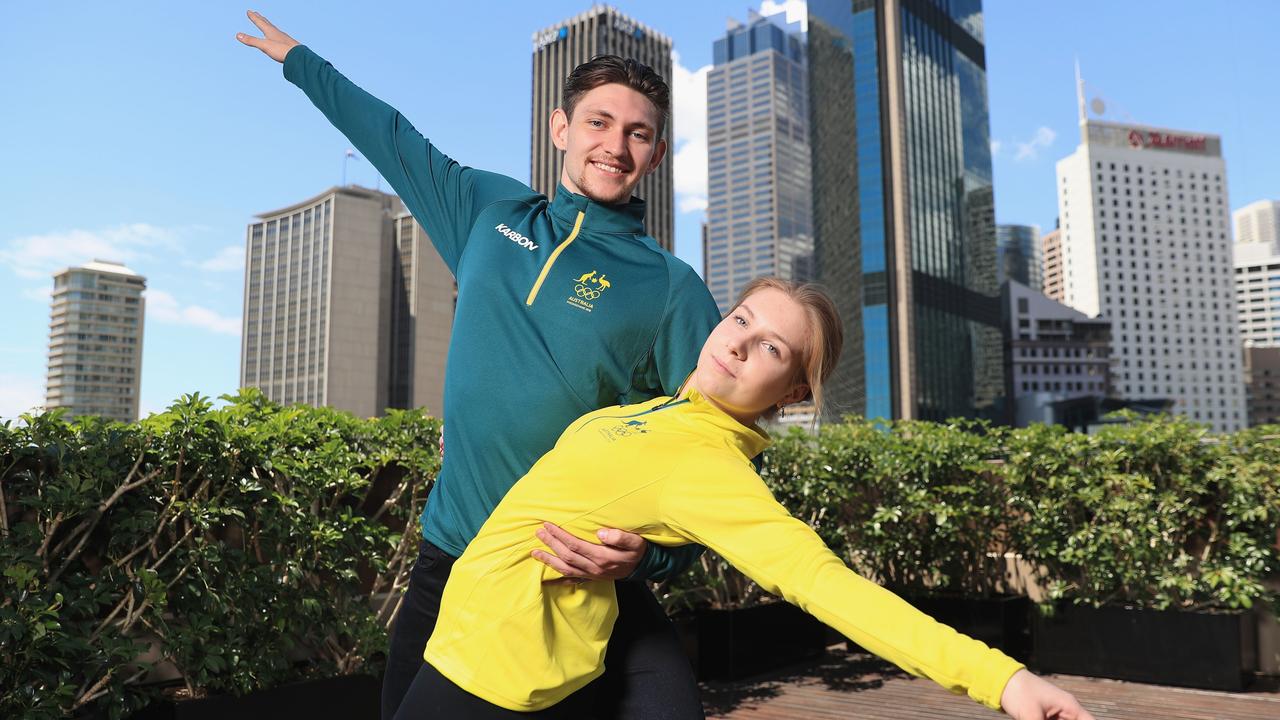
Sad details about the life of Ekaterina “Katia” Alexandrovskaya have emerged in the wake of her death on the weekend.
The body of the Russian-born figure skater, who represented Australia at the 2018 Winter Olympics in PyeongChang, was found near her house next to a note which read: “I love.” Investigators say there are no suspicious circumstances.
Tributes poured in for Alexandrovskaya, led by her former skating partner Harley Windsor, who had hoped to team up with the 20-year-old again at the 2022 Winter Games.
But Alexandrovskaya, who became an Australian citizen in 2016, was forced to quit the sport after being diagnosed with epilepsy earlier this year.
“Due to health concerns, Katia and I are unable to continue. I want to take this opportunity to wish Katia all the best in the future and a quick recovery,” Windsor wrote on Instagram at the time.
Alexandrovskaya’s coach Andrei Khekalo told AFP that even before she was diagnosed with epilepsy she suffered from depression, while Australia’s 2018 Olympic chef de mission Ian Chesterman alluded to her issues as she struggled with life without skating.
“We are all deeply saddened to hear the news today,” Chesterman said. “Life since the Games has not been easy for her and this is another timely reminder of just how fragile life is.”
RELATED: World reacts to Alexandrovskaya’s death
As reported by the Daily Mail, Russia’s Channel 5 claimed Alexandrovskaya had been “forced to work in a striptease club” to make ends meet.
The publication also quoted Khekalo as saying Alexandrovskaya “ceased to engage in an active life” after she stopped skating, while her former choreographer Andrey Pashin reportedly said: “She had everything, and suddenly it was all over.”
Per the Daily Mail, Alexandrovskaya’s former childhood coach Inna Goncharenko added: “I know that Katia had … returned to Moscow in order to re-establish herself somehow, to find something for herself, but her mood was not very good.”
The Daily Telegraph reports “sports psychologists have long known about the serious risk of depression in high-performance athletes” and Alexandrovskaya’s death “is a tragic reminder of how real those concerns are”.
Windsor’s coach Galina Pachina told the publication: “I only hope her heart has found peace.”
Windsor posted an emotional tribute to Alexandrovskaya on social media and in a later addition to his Instagram story, included a picture of both of them with the caption: “Hope you’re in a better place now. RIP Katia.”
Earlier, he’d written: “Words can not describe how I feel right now, I am devastated and sick to my core about the sad and sudden passing of Katia. The amount we had achieved during our partnership is something I can never forget and will always hold close to my heart.
“This news is something you can never prepare for. Rest In Peace Katia.”
Alexandrovskaya and Windsor won the 2016-17 Junior World Figure Skating Championships together, giving the pair the platform to qualify for the 2018 Winter Olympics, where they finished 18th.
The duo met in December 2015 when Alexandrovskaya auditioned with Windsor in Moscow under the watch of Nina Mozer, who coached 2014 Olympic champions Tatiana Volosozhar and Maxim Trankov.
Olympic Winter Institute of Australia CEO Geoff Lipshut said the pair achieved a lot in a short time and it was tragic to hear of Alexandrovskaya’s death.
“Katia and Harley were Australia’s first figure skating world champions,” Lipshut said. “She came to Australia to fulfil her sporting dreams.
“The news … is so sad, my thoughts are with Katia’s family in Russia, Harley and the skating community in Australia. I will remember Katia as a young person of great talent and remarkable potential.”
If you need help in a crisis, call Lifeline on 13 11 14 or MensLine Australia on 1300 78 99 78,
For further information about depression, contact beyondblue on 1300 22 4636 or talk to your GP, local health professional or someone you trust.
